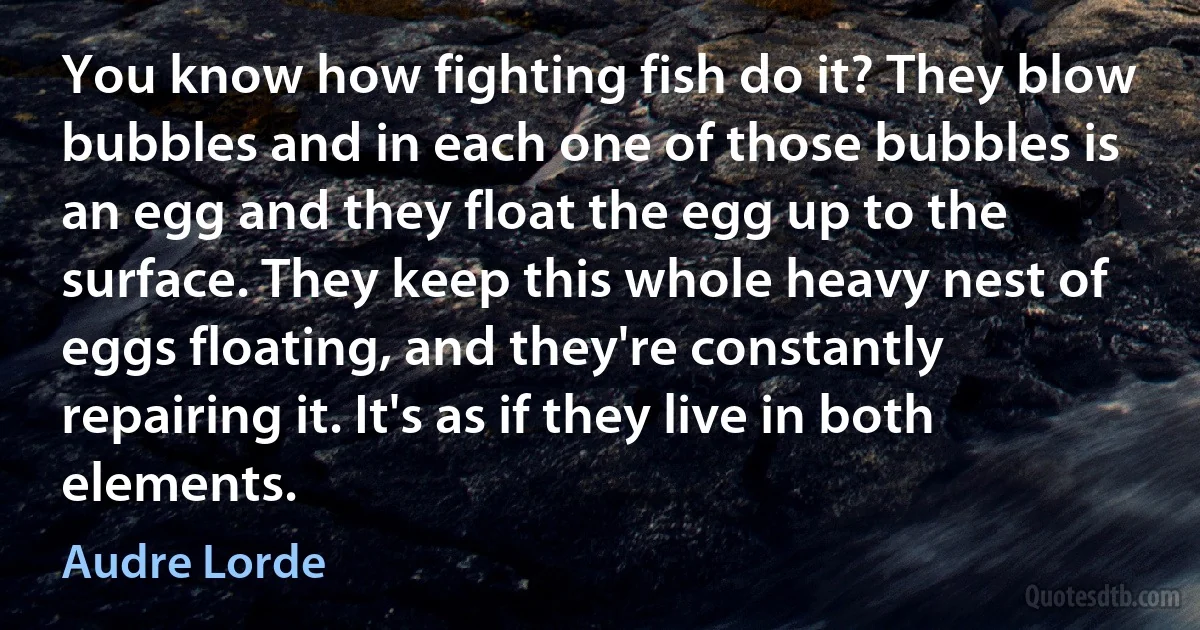Egg Quotes - page 4
The original idea, the sketch, which is so to speak the egg or embryo of the idea, is usually far from being complete; it contains everything, which is simply a mixing together of all parts. Just the thing that makes of this sketch the essential expression of the idea is not the suppression of details, but their complete subordination to the big lines, which are, before all else, to create the impression. The greatest difficulty therefore is that of returning in the picture to that effacing of the details which, however, make up the composition, the web and the woof of the picture.

Eugène Delacroix
Curse the blasted, jelly-boned swines, the slimy, the belly-wriggling invertebrates, the miserable sodding rotters, the flaming sods, the sniveling, dribbling, dithering palsied pulse-less lot that make up England today. They've got white of egg in their veins, and their spunk is that watery its a marvel they can breed. They can nothing but frog-spawn - the gibberers! God, how I hate them! God curse them, funkers. God blast them, wish-wash. Exterminate them, slime.
I could curse for hours and hours - God help me.

D. H. Lawrence
Part of how we come to take command of our world, to take command of our environment, to make these tools by which we're able to do this, is we ask ourselves questions about it the whole time. So this man starts to ask himself questions. "This world," he says, "so who made it?" Now, of course he thinks that, because he makes things himself. So he's looking for someone who would have made this world. He says, "Well, so who would have made this world? Well, it must be something a little like me. Obviously much much bigger. And necessarily invisible. But he would have made it. Now why did he make it?" Now we always ask ourselves "why?" because we look for intention around us; because we always intend– we do something with intention. We boil an egg in order to eat it. So we look at the rocks, and we look at the trees, and we wonder what intention is here even though it doesn't have intention.

Douglas Adams
But none of this criticism of science makes religion even a tiny bit more credible...
In contrast, religion has never been right in its claims about the universe-at least not in a way that all rational people can accept. There is no reliable method to show that the Trinity exists, that God is loving and all-powerful, that we'll meet our dead relatives in the afterlife, or that Brahma created the universe from a golden egg. Lacking a way to show its tenets are wrong, religion cannot show them to be right, even provisionally.

Jerry Coyne
Invention, it must be humbly admitted, does not consist in creating out of void, but out of chaos; the materials must, in the first place, be afforded: it can give form to dark, shapeless substances, but cannot bring into being the substance itself. In all matters of discovery and invention, even of those that appertain to the imagination, we are continually reminded of the story of Columbus and his egg. Invention consists in the capacity of seizing on the capabilities of a subject, and in the power of moulding and fashioning ideas suggested to it.

Mary Shelley
There is always a best way of doing everything, if it be to boil an egg. Manners are the happy ways of doing things; each once a stroke of genius or of love, - now repeated and hardened into usage. They form at last a rich varnish, with which the routine of life is washed, and its details adorned.

Ralph Waldo Emerson
One extraordinary fiction of the Egyptian mythology was the supposed intervention of a masculo-feminine principle, to which was assigned the development of the embryo world, somewhat in the way of incubation. For the doctrine was, that when the first chaotic mass had been produced, in the form of an egg, by a self-dependent and eternal Being, it required the mysterious functions of this masculo-feminine demi-urgus to reduce the component elements into organized forms.

Charles Lyell



